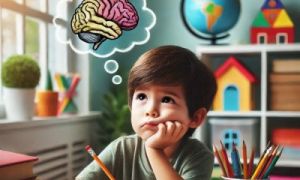

The following provides a list of activity ideas for each sub-outcome of MTOP Outcome 2: Children and Young People Are Connected With And Contribute To Their World.
Zoo-themed activities are a fantastic way to engage toddlers and preschoolers while teaching them about animals, habitats, and conservation. The following article provides information on Zoo Themed Activity Ideas, Zoo Themed Children's Books, Importance Of Zoo Theme, Goals For Zoo Theme, Linking To The EYLF and more.
The following provides a list of activity ideas for each sub-outcome of MTOP Outcome 1: Children Have a Strong Sense of Identity.
Here are several ideas for an outdoor experience that weaves together sustainability and Aboriginal perspectives/culture in a way that feels authentic, respectful, and engaging for young children.
Music activities are a fantastic way to engage children, enhance their creativity, and support their cognitive and social development. Here are some fun and interactive music activities for toddlers and preschoolers.
The following provides a list of outdoor activities for babies and toddlers that promote sensory exploration and interaction with the natural environment. It also includes linking to the EYLF and the benefits of outdoor play for babies and toddlers.
The "Health" theme introduces children to essential practices like washing hands, brushing teeth, and eating balanced meals. The following article provides Health Theme Activity Ideas, Importance Of Heatlh Theme, Goals For Health Theme, Linking To The EYLF, and more.
Gardening offers a wealth of educational benefits for children, fostering development across multiple domains. It also fosters environmental sustainability. The following provides a list of 20 Gardening Activities and the Benefits Of Gardening For Children.
From the 2nd of April to the 13th of April is Nature Play Week. Nature Play Week is an annual event that celebrates the importance of outdoor play and connecting children with nature. The following provides activity ideas that will help you celebrate Nature Play Week at your service and can be implemented into the curriculum for children.
 Toddlers have a greater understanding of the world around them by this stage. Their cognitive development (also known as intellectual development and thinking skills) continues… Read More
Toddlers have a greater understanding of the world around them by this stage. Their cognitive development (also known as intellectual development and thinking skills) continues… Read More
 Infants begin to develop trust when parents begin to fulfil their needs. Such as changing an infant's nappy when needed, feeding on request and holding… Read More
Infants begin to develop trust when parents begin to fulfil their needs. Such as changing an infant's nappy when needed, feeding on request and holding… Read More
 Beginning at birth the construction of thought processes, such as memory, problem solving, exploration of objects etc, is an important part of an infant’s cognitive… Read More
Beginning at birth the construction of thought processes, such as memory, problem solving, exploration of objects etc, is an important part of an infant’s cognitive… Read More
 Toddlers want to do more on their own and do not like it when you begin to establish limits on their behaviour. Tantrums can become… Read More
Toddlers want to do more on their own and do not like it when you begin to establish limits on their behaviour. Tantrums can become… Read More
 Your preschooler is now able to focus their attention more accurately and is less influenced by distractions. The intensity of questions increase as your child… Read More
Your preschooler is now able to focus their attention more accurately and is less influenced by distractions. The intensity of questions increase as your child… Read More
 John Dewey is often seen as the proponent of learning by doing – rather than learning by passively receiving. He believed that each child was active,… Read More
John Dewey is often seen as the proponent of learning by doing – rather than learning by passively receiving. He believed that each child was active,… Read More
 Toddler advance and gains new skills in Gross Motor Development milestones achieved throughout earlier years. Co-ordination and challenges that could not be performed before such… Read More
Toddler advance and gains new skills in Gross Motor Development milestones achieved throughout earlier years. Co-ordination and challenges that could not be performed before such… Read More
 Erik Erikson developed a psychosocial theory to understand how we each develop our identities through eight stages of psychosocial development from infancy to adulthood. The… Read More
Erik Erikson developed a psychosocial theory to understand how we each develop our identities through eight stages of psychosocial development from infancy to adulthood. The… Read More
 At this point preschoolers begin to interact effectively with others. Play becomes more innovative and organized and “boyfriend” or “girlfriend” begins to emerge. Preschoolers have… Read More
At this point preschoolers begin to interact effectively with others. Play becomes more innovative and organized and “boyfriend” or “girlfriend” begins to emerge. Preschoolers have… Read More
 From now, babies begin to identify and respond to their own feelings, understanding other's feelings & needs and interact positively with others. A baby's social and… Read More
From now, babies begin to identify and respond to their own feelings, understanding other's feelings & needs and interact positively with others. A baby's social and… Read More

Autism is a disorder of neural development characterized by impaired social interaction and communication, and...
See more...
Metacognition refers to the awareness and understanding of one's own thought processes. The following article...
See more...
Brain development is directly related to cognitive development which describes how a child’s intellect grows...
See more...© 2009-2026 Aussie Childcare Network Pty Ltd. All Rights Reserved.
